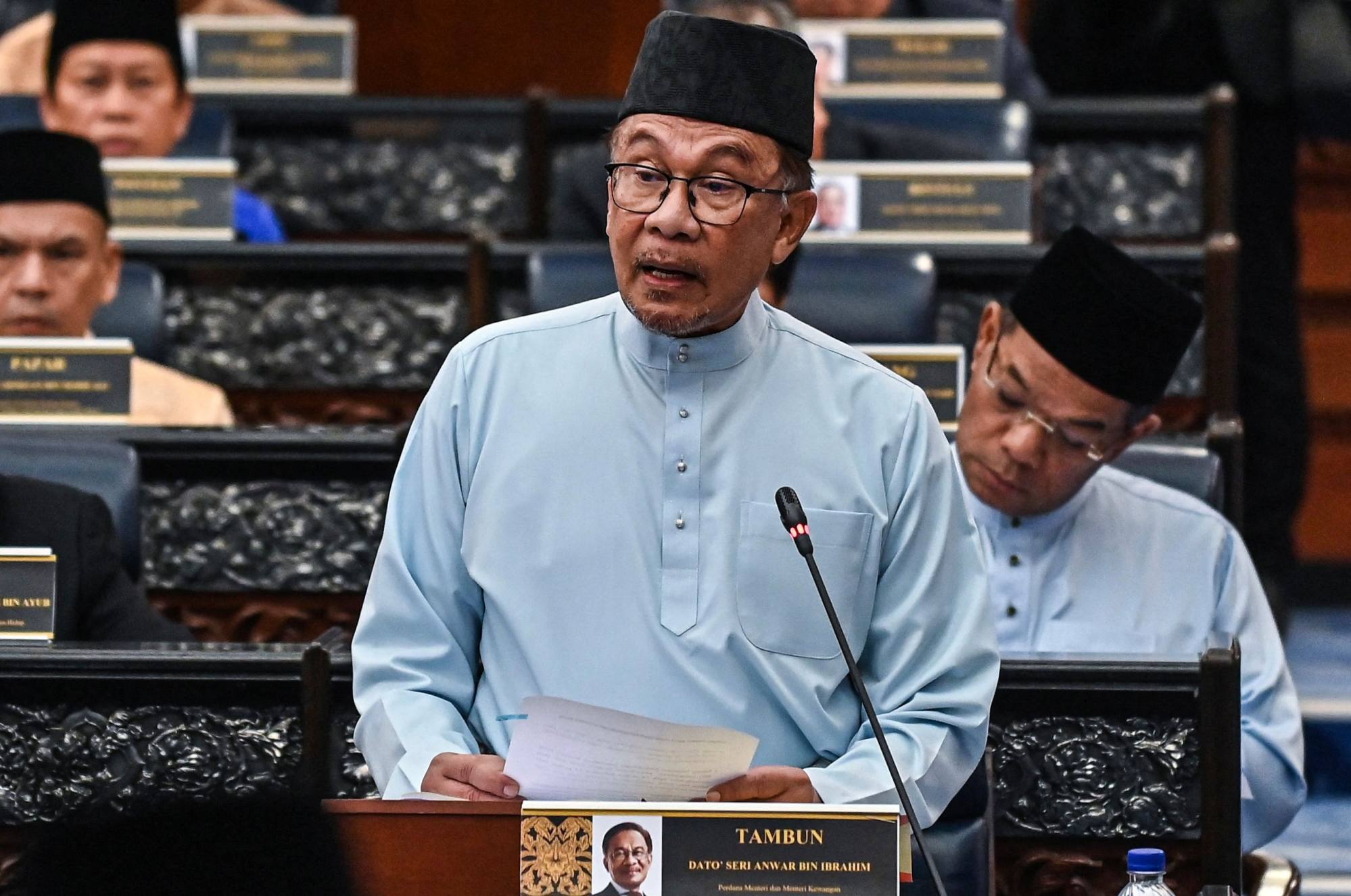Malaysia PM Anwar Ibrahim to continue fiscal tightening in new budget

[ad_1]
Anwar, who doubles as the finance minister, will probably increase spending in the financial year starting January to support economic growth, according to most economists surveyed by Bloomberg ahead of Friday’s annual budget presentation. Still, he is likely to target narrowing the fiscal deficit – the gap between revenue and expenditure – to 4.28 per cent of gross domestic product from an estimated 5 per cent this year.
While the government, according to Economy Minister Rafizi Ramli, is considering ending blanket subsidies in favour of targeted help to reduce the deficit, survey respondents said Anwar will also likely rely on dividend payouts from state oil company Petroliam Nasional Bhd and measures to boost tax compliance to bridge the gap.
Malaysia makes ‘aggressive’ dedollarisation push for China trading
Malaysia makes ‘aggressive’ dedollarisation push for China trading
The administration eventually plans to narrow the budget deficit to 3.5 per cent of GDP by 2025. Achieving the goal will pave the way for reducing the debt to GDP ratio to 60 per cent from the current 63 per cent, Rafizi said earlier this month.

The Malaysian economy is forecast to expand 4.5 per cent in 2024, according to the median of 11 estimates. That will be faster than the 4 per cent pace estimated by analysts this year.
Like all export-reliant nations, Malaysia’s economic expansion has moderated this year amid a global slowdown in demand for goods. Anwar targets boosting growth to as fast as 6 per cent in the near term through reforms.
The budget is likely to cement the government’s commitment toward fiscal consolidation and reforms, complementing recent medium-term policy announcements, Lavanya Venkateswaran, an economist at Oversea-Chinese Banking Corp., wrote in a research note.
Still, others, including Bank Islam Malaysia Berhad economist Firdaos Rosli, see any move to remove blanket subsidies as an inflationary risk.
“We posit that inflation will inch up by 0.4 per cent above baseline for every 10 cents increase in retail oil prices,” he said.
Anwar warns Malaysian economy faces ‘very serious crisis’ without reforms
Anwar warns Malaysian economy faces ‘very serious crisis’ without reforms
The government’s resolve to do away with subsidies for motor fuels could be tested by the spike in global oil prices amid the conflict in the Middle East.
Inflation risks aside, the government is counting on cutting subsidies to strengthen its fiscal position, without having to introduce too many levies. Still, four of the 11 economists surveyed aren’t ruling out new taxes next year. The government may follow through with its previously announced taxes such as those on luxury goods and the disposal of unlisted shares, according to analysts at Kenanga.
“Additionally, we believe that the government may also introduce a vacancy tax, targeting landowners, developers and homeowners to address the issue of property overhand as well as unlocking the value of land for productive use in Malaysia,” said the Kenanga economists in a note on Monday.
Additional reporting by Reuters
[ad_2]
Source link





